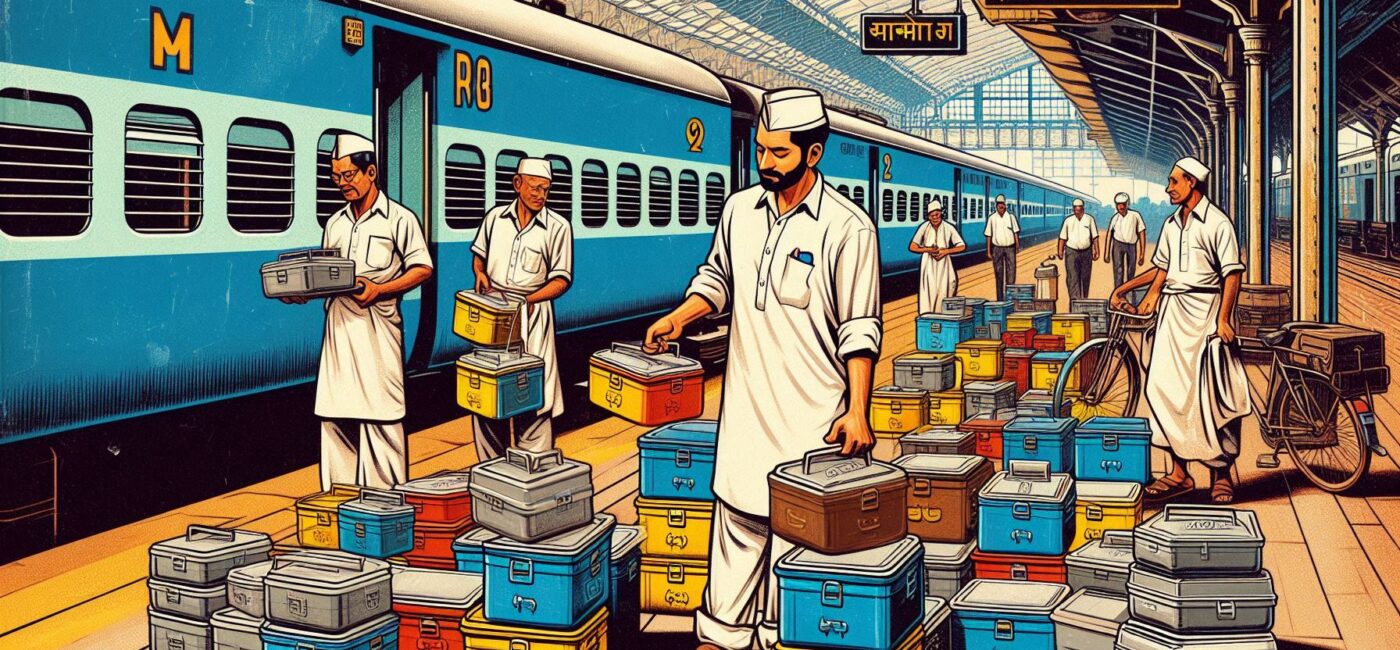In Mumbai, where the city never sleeps, there’s a group of heroes who make sure no one misses their lunch. They’re called dabbawalas—men who deliver home-cooked meals to office workers every day. Using bicycles, trains, and a simple color-coded system, they deliver around 200,000 lunchboxes with almost zero mistakes. Let’s uncover the mystery of Mumbai’s dabbawalas and see how they make magic happen.
A 130-Year-Old Tradition
The dabbawala system started in 1890, when Mumbai was growing fast, and workers wanted home-cooked food instead of eating out. A man named Mahadeo Havaji Bachche began delivering lunchboxes, and soon, it became a big network. Today, around 5,000 dabbawalas work together to deliver meals across the city. They’ve been doing this for over 130 years, and even big companies like Harvard study their system because it’s so perfect!
The Color-Code Magic
“Dabba sahi jagah pehunchana hai, bhai!”—The lunchbox has to reach the right place, brother! Yeh color-code toh ekdum perfect kaam karta hai! (This color-code works perfectly!) Dabbawalas don’t use apps or computers—they use a simple system of colors and symbols. Each lunchbox (dabba) has a code painted on it, like “K” for Kurla station or “9” for a specific building. They pick up dabbas from homes, sort them at train stations, and deliver them to offices by 1 PM. Then, they return the empty boxes by evening. It’s so efficient that they make fewer mistakes than most high-tech delivery companies!
A Day in the Life
A dabbawala’s day starts early. By 9 AM, they’re on their bicycles, collecting dabbas from homes. They take them to the nearest train station, where the boxes are sorted and loaded onto trains. At the other end, another dabbawala takes over, delivering the dabba to the right office. They work in teams, and everyone knows their role. Rain or shine, they never stop—even during Mumbai’s heavy monsoons, your lunch arrives on time!
Why It Matters
For Mumbaikars, dabbawalas are a lifeline. Many workers don’t have time to cook or eat out, and canteens aren’t always healthy. A dabba brings the comfort of ghar ka khana (home-cooked food), like mom’s dal or spouse’s paratha. One office worker said, “My dabba is my happiness—I wait for it every day.” The dabbawalas don’t just deliver food; they deliver love and care.
Share Their Amazing Story
The dabbawalas are so inspiring that people all over the world talk about them. They’ve even met Prince Charles, who invited them to his wedding! Next time you’re in Mumbai, spot a dabbawala in his white cap and kurta, take a picture, and share their story online. It’s a tale of hard work, teamwork, and the magic of home-cooked meals!

